Benefits of a healthy diet: new research
Could prescriptions for fruit and vegies instead of pills help to prevent disease? New Aussie research provides greater insights into the many (many) benefits of a healthy diet.
Hippocrates, the father of modern medicine, is attributed as saying, “Let food be thy medicine”. It just goes to show how clued up those Ancient Greeks could be. One day, instead of pushing pills, your doctor might write you a prescription for fruit, vegetables, nuts and grains. If a new study from Australian and US researchers is anything to go by, having GPs prescribe nutritious food instead of medication could potentially lead to better health outcomes for people who suffer from conditions like diabetes, obesity and cardiovascular disease. These health problems are seriously on the rise in Australia.
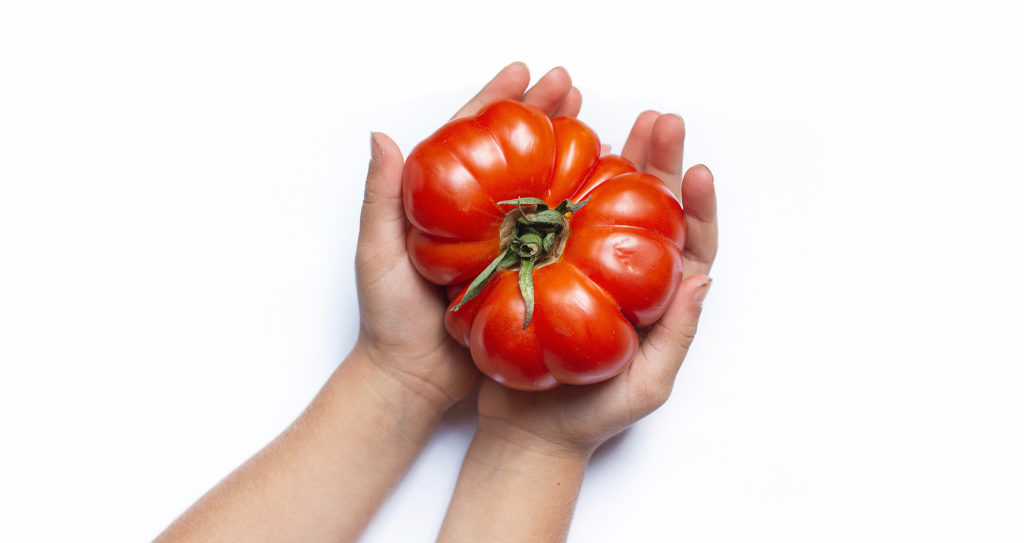
Take two carrots and call me in the morning
Researchers from Sydney’s George Institute for Global Health and the Friedman School of Nutrition Science & Policy at Tufts University in the US studied 13 healthy food prescription programs that provided or subsidised healthy foods as a form of medical treatment. Their findings were pretty encouraging. People in these programs not only ate more healthy foods; they also reported improvements in body weight and blood glucose levels.
“Collectively, we saw a positive impact on the health of the patients in these programs,” says Dr Jason Wu, Program Head of Nutrition Science at The George Institute. “We found the effect of healthy food prescriptions on blood glucose was comparable to what you would expect to see from some commonly-prescribed glucose-lowering medications. This adds weight to the growing evidence that food can also be medicine.”
The concept of a healthy diet prescription could be particularly game-changing for people with limited access to fresh foods, as well as those facing financial difficulties, as fresh fruit and veg can be a lot cheaper than a prescription from the chemist.
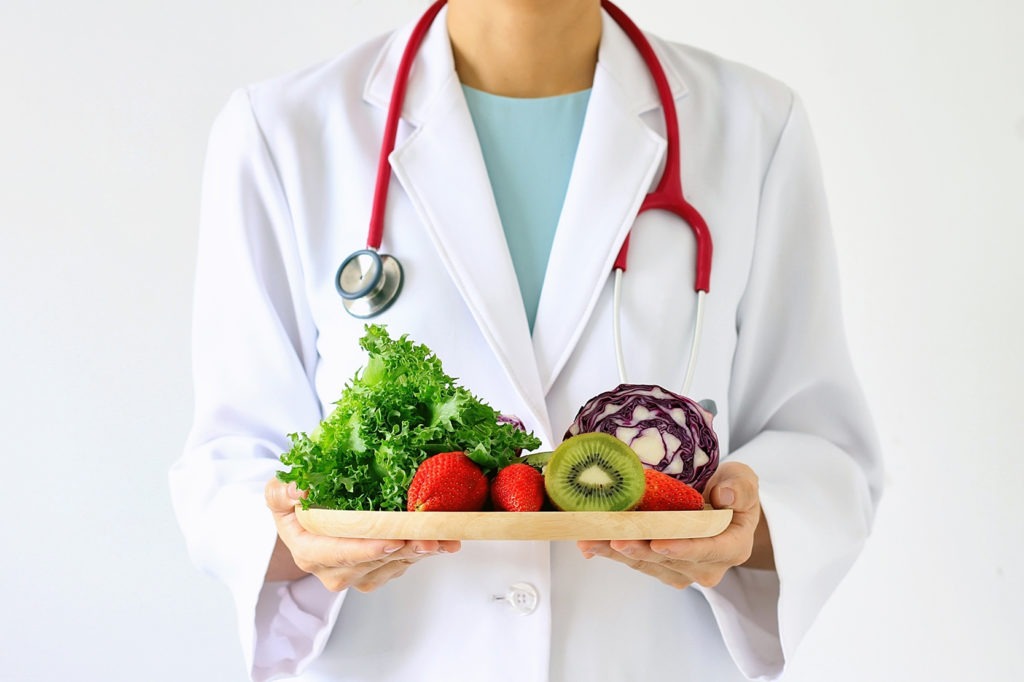
Piloting progress
While this study certainly indicates that prescribing healthy foods can lead to improvements in diet and health, more research is needed before there’s any chance of such programs going mainstream. The focus of most healthy diet prescription programs so far has also been purely on fruit and veg. There are some other outstanding candidates that could also be a part of a concept like this. Nuts, beans, whole grains and fish are all fantastic for health, but the impact of “prescribing” them hasn’t been studied. Until now.
A first-of-its kind “Food Farmacy” pilot study has been developed at Royal Prince Alfred Hospital in Sydney. The three-month program is providing weekly boxes fruits, vegies, nuts, dairy and grains to 50 food insecure patients with poorly-controlled type 2 diabetes.
“Through this pilot study, we will establish the logistics and feasibility of setting up a healthy food prescription program for vulnerable patients in Australia,” Dr Wu says. “We’ll assess its impact on the participants’ overall diet. It’s early days for our study, but initial reactions seem very positive – from both doctors and patients.”
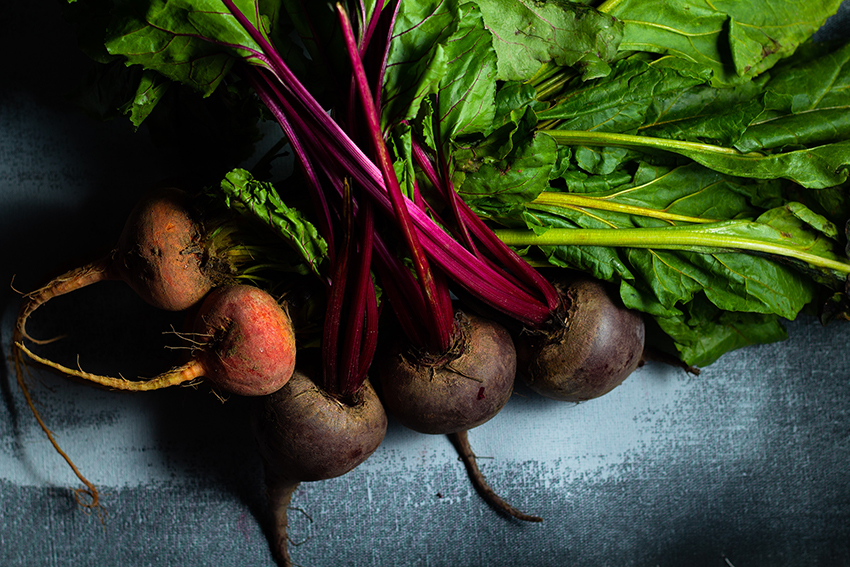
A cup a day keeps heart disease away
You don’t need a truckload of vegies to enjoy the health benefits. New Edith Cowan University (ECU) research has found that by eating just one cup of nitrate-rich vegetables each day, you can significantly reduce your risk of heart disease.
The study looked at whether people who regularly ate more nitrate-rich veg – leafy greens like kale and spinach and root vegies like radish and beetroot – had lower blood pressure. Also, whether they were less likely to be diagnosed with heart disease down the track.
The researchers trawled through data from more than 50,000 people. They found that those who ate the most nitrate-rich vegies had lower systolic (the top number) blood pressure. Their risk of heart disease was also 12 to 26 percent lower.
“Our results show that by simply eating one cup of raw or half a cup of cooked nitrate-rich vegetables each day, people may significantly reduce their risk of cardiovascular disease,” says lead researcher Dr Catherine Bondonno from ECU’s Institute for Nutrition Research.
“The greatest reduction in risk was for peripheral artery disease. This is a type of heart disease characterised by the narrowing of blood vessels of the legs. However, we also found people had a lower risk of heart attacks, stroke and heart failure.”
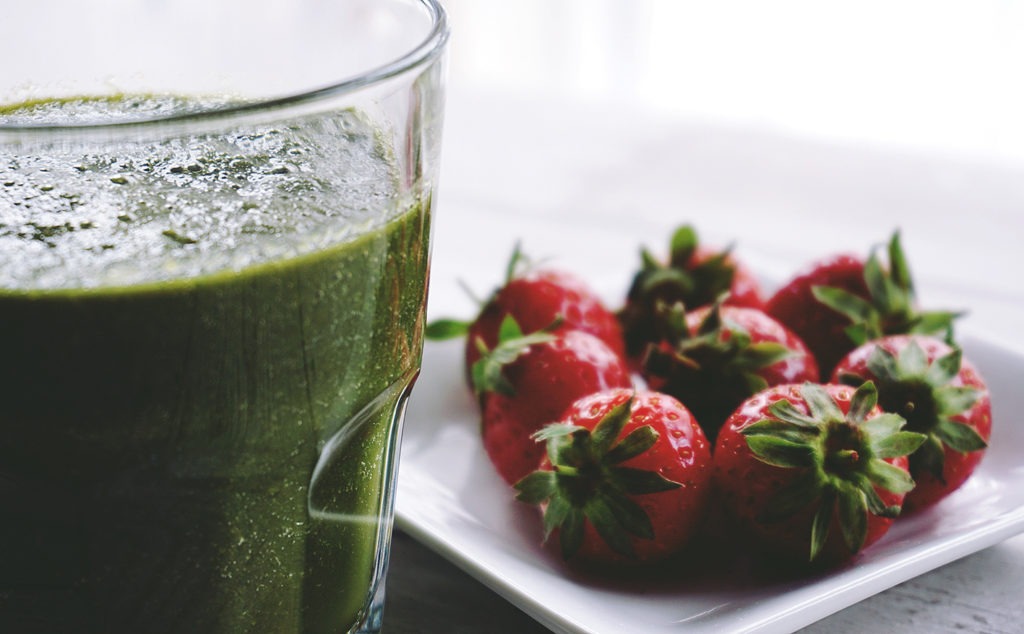
Forget the supps, but smoothies are all good
Eating one cup of nitrate-rich vegetables each day is all it takes. The study found that eating more didn’t appear to provide any extra protection. Since it’s easy to add one cup of veg to your day, there’s no need to pay for costly supplements.
“People don’t need to take supplements to boost their nitrate levels,” Dr Bondonno says. “One cup of leafy greens each day is enough to reap the benefits for heart disease.”
For those who find the taste of vegies like spinach or kale a tad unpleasant, Dr Bondonno suggests hacks like including a cup of greens in a banana or berry smoothie.
“Blending leafy greens is fine, but don’t juice them,” she says. “Juicing vegetables removes the pulp and the fibre.” That’s where all the good stuff is.
This latest research only adds to growing evidence from ECU that’s linking vegies with better health. Other studies have found a link between cruciferous vegetables and blood vessel health and green leafy vegetables and muscle strength.

More fruit and vegies linked to less stress
A healthy diet isn’t just about your body. The right foods can also boost your psychological wellbeing. More research out of ECU has found that a diet rich in fruit and vegetables is associated with less stress. And we could all use a little less stress, right?
The study looked at the link between fruit and veg intake and stress levels of more than 8600 Australians taking part in the Australian Diabetes, Obesity & Lifestyle Study. Researchers found that people who ate at least 470g of fruit and veg each day had stress levels 10 percent lower than those who ate less than 230g.
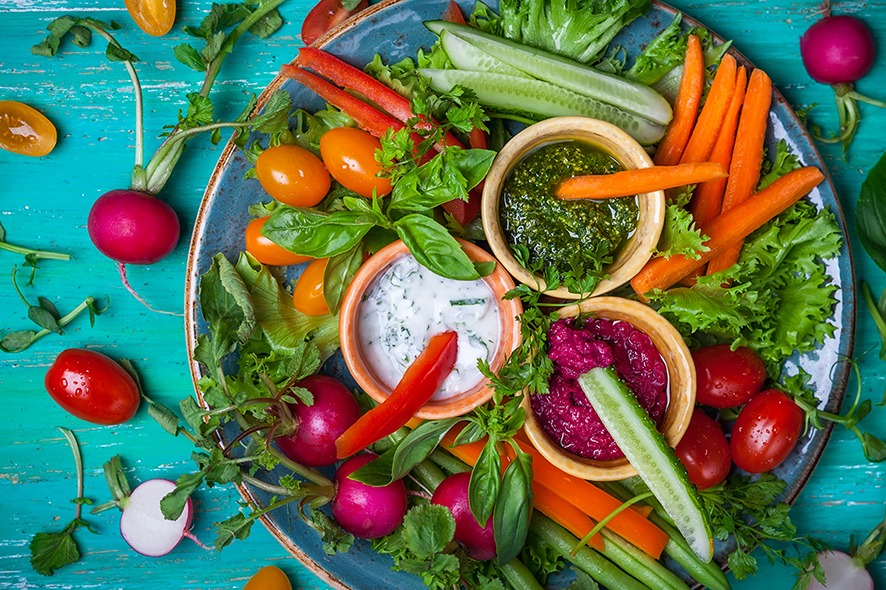
Chomp and chill
Long-term, unmanaged stress can lead to a whole host of health problems, from heart disease and diabetes to depression and anxiety. While it’s still unclear exactly how eating fruit and vegies reduces stress, the study’s lead researcher, ECU PhD candidate Simone Radavelli-Bagatini, says the key nutrients found in these foods could be playing a role.
“Vegetables and fruits contain nutrients such as vitamins, minerals, flavonoids and carotenoids that can reduce inflammation and oxidative stress, and therefore improve mental wellbeing,” she says. “Inflammation and oxidative stress in the body are recognised factors that can lead to increased stress, anxiety and lower mood.”
Want to up your fruit and veg intake as part of a healthy diet? It’s a lot easier and tastier than you might think. Check out these expert tips on how to get more plant foods into your diet, this advice on how to up your veg intake and this dietitian’s guide to winter superfoods.









